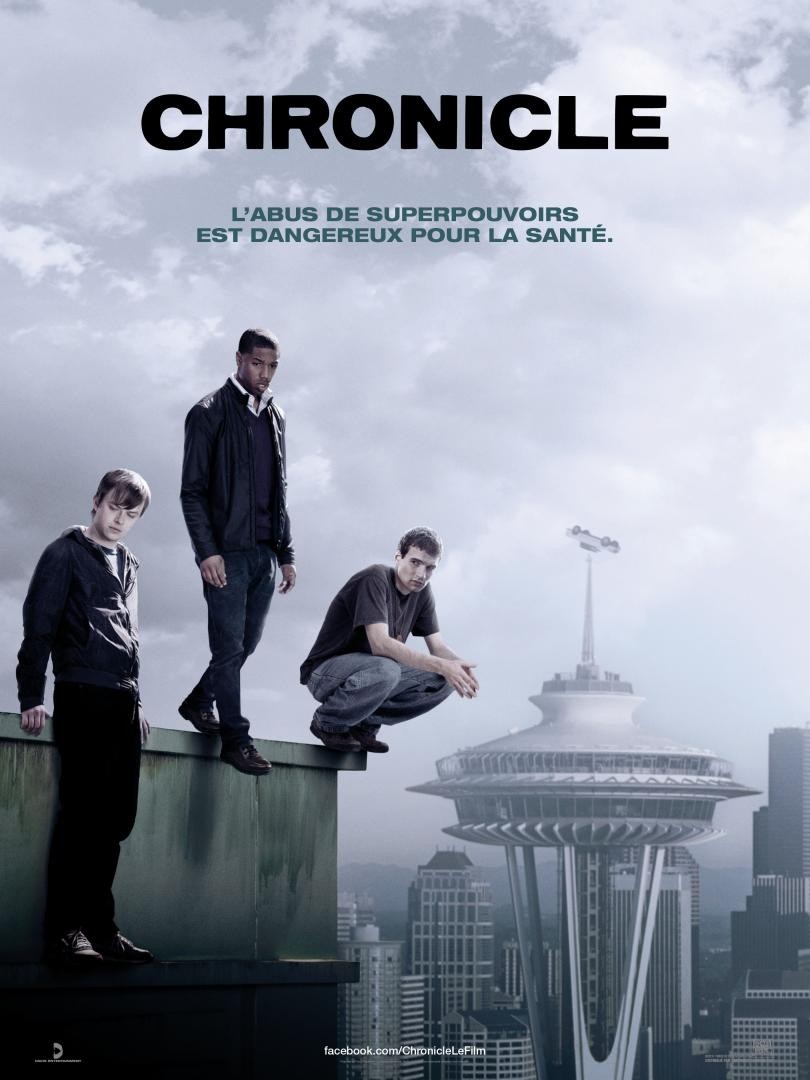It’s become a tradition for me to do a year-end post about the books I read and reviewed. Goodreads helps a lot with that (though annoyingly, I couldn’t find a way to copy, share or use html code for the personalized graphic as I had in years past). Anyway, you can see my Year in Books arranged with pretty images and statistics here.
I read a total of 23 books, which is down one book from last year. That’s not too bad considering this year I spent a little more time on manuscript swaps with writing buddies. The genres fell into the following categories:
LGBTQ+ sci fi/fantasy: 13
LGBTQ+ general fiction: 4
LGBTQ+ mystery: 2
General sci fi/fantasy: 2
LGBTQ+ YA: 1
Non-fiction: 1
And I’m happy to say 95% of the LGBTQ+ titles were #OwnVoices.
Fourteen of those books I read for review sites, which explains the preponderance of LGBTQ+ and fantasy titles. I volunteer to review those genres. I have two favorites to recommend from that group.
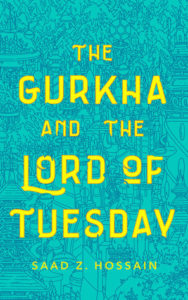 The Gurka and the Lord of Tuesday by Saad Hossain is a laugh out loud, Pratchett-esque sci fi comedy drawn from Arabian folklore. You can read my review at NY Journal of Books here.
The Gurka and the Lord of Tuesday by Saad Hossain is a laugh out loud, Pratchett-esque sci fi comedy drawn from Arabian folklore. You can read my review at NY Journal of Books here.
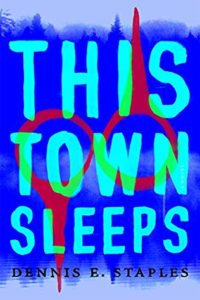 My other favorite title that I reviewed was This Town Sleeps by Dennis E. Staples. It’s a family saga/ghost story set in an Ojibwe community, with a gay lead character. This Town Sleeps was also the last book I finished in 2019. I received an advanced review copy. It doesn’t release until March 2020, and the review hasn’t gone up yet at Out in Print.
My other favorite title that I reviewed was This Town Sleeps by Dennis E. Staples. It’s a family saga/ghost story set in an Ojibwe community, with a gay lead character. This Town Sleeps was also the last book I finished in 2019. I received an advanced review copy. It doesn’t release until March 2020, and the review hasn’t gone up yet at Out in Print.
Some other honorable mentions: I did well with gay mysteries this year, and I highly recommend Marshall Thornton’s Late Fees and Michael Craft’s Choirmaster.
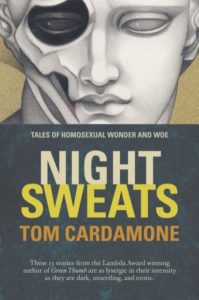 As for the nine titles I read entirely for leisure or research, Tom Cardamone’s short story collection Night Sweats: Tales of Homosexual Wonder and Woe tops the list. The stories are visceral, often disturbing and wildly imaginative. Tom and I did a Pop Up Swap on my blog, which you can read here.
As for the nine titles I read entirely for leisure or research, Tom Cardamone’s short story collection Night Sweats: Tales of Homosexual Wonder and Woe tops the list. The stories are visceral, often disturbing and wildly imaginative. Tom and I did a Pop Up Swap on my blog, which you can read here.
I also really enjoyed J.P. Jackson’s Magic or Die, which I read for another author swap earlier in the year. That title is a gay mutant/superhero fantasy that draws on the author’s extensive knowledge of pagan beliefs and practices.
So what’s next for me? Nothing too different, I expect. Since I’m continuing as a reviewer at NY Journal of Books, Out in Print and Queer Sci Fi, I’ll be reading more sci fi/fantasy titles, especially those of LGBTQ+ interest. Plus I’m still working on expanding my Intro to Gay Fantasy reading list, hoping to discover some gems and classics. Sadly, I didn’t find any titles to add to the list this past year.
I’m also going to read more books written by authors of color.
This post also serves as my Happy Holidays post for 2019 so here’s a handsome fellow in the holiday spirit for you.
I’m so grateful for your support and hope you have a rollicking or relaxing time, whichever floats your boat. Let me know how you did with books in 2019 and/or what you are looking forward to reading next year.



 I really liked everything about Jack the Giant Slayer, from the re-told fairytale storyline, to the mood and the atmosphere, and to the acting and the action sequences. It got pretty crappy reviews and was branded as another lazy Hollywood fairytale remake, along with 2012’s Snow White and the Huntsmen, Hansel and Gretel: Witch Hunters and Red Riding Hood. But for me, Jack stood above those films simply for sticking to action adventure rather than overpowering the story with sexuality, modern sensibilities and/or “deeper meaning.” It’s not destined to be a classic, but I thought it was really fun and well-conceived.
I really liked everything about Jack the Giant Slayer, from the re-told fairytale storyline, to the mood and the atmosphere, and to the acting and the action sequences. It got pretty crappy reviews and was branded as another lazy Hollywood fairytale remake, along with 2012’s Snow White and the Huntsmen, Hansel and Gretel: Witch Hunters and Red Riding Hood. But for me, Jack stood above those films simply for sticking to action adventure rather than overpowering the story with sexuality, modern sensibilities and/or “deeper meaning.” It’s not destined to be a classic, but I thought it was really fun and well-conceived.
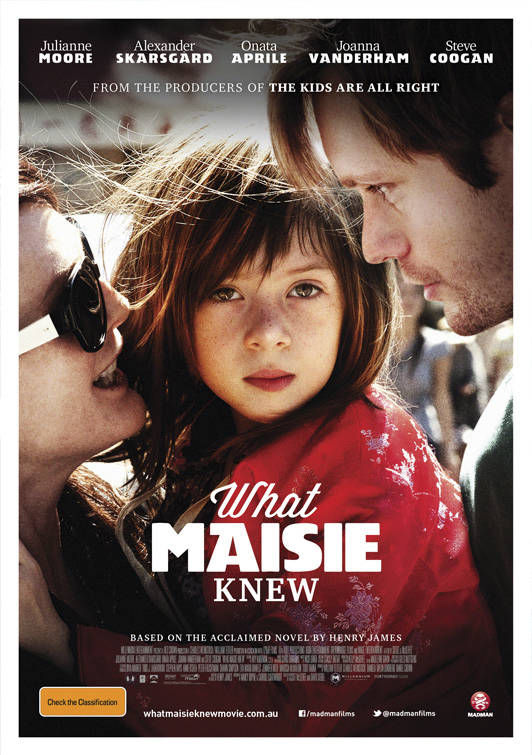

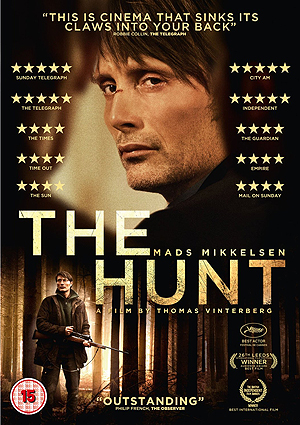
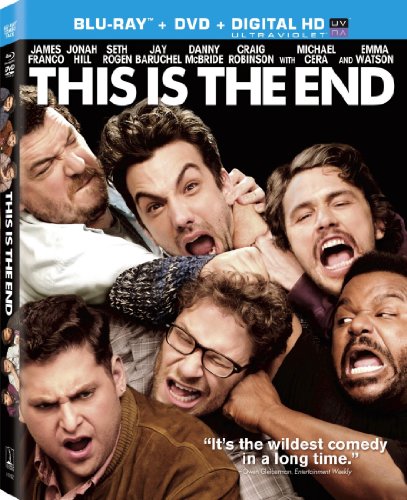
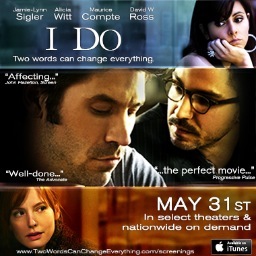 This 2012 indie film had a grassroots tour across the country that went into 2013. I saw it On Demand in the spring. I thought the acting and the writing were solid, and the modern storyline was very appealing. Though I Do was marketed in part as a film about marriage equality and its implications for cross-national couples, I thought the movie’s handling of universal, tragic themes–the aftermath of the sudden death of the main character’s brother–was equally compelling.
This 2012 indie film had a grassroots tour across the country that went into 2013. I saw it On Demand in the spring. I thought the acting and the writing were solid, and the modern storyline was very appealing. Though I Do was marketed in part as a film about marriage equality and its implications for cross-national couples, I thought the movie’s handling of universal, tragic themes–the aftermath of the sudden death of the main character’s brother–was equally compelling.
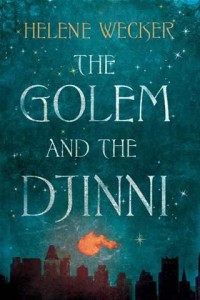

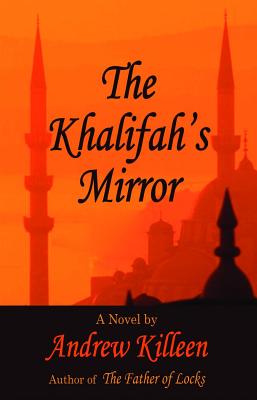
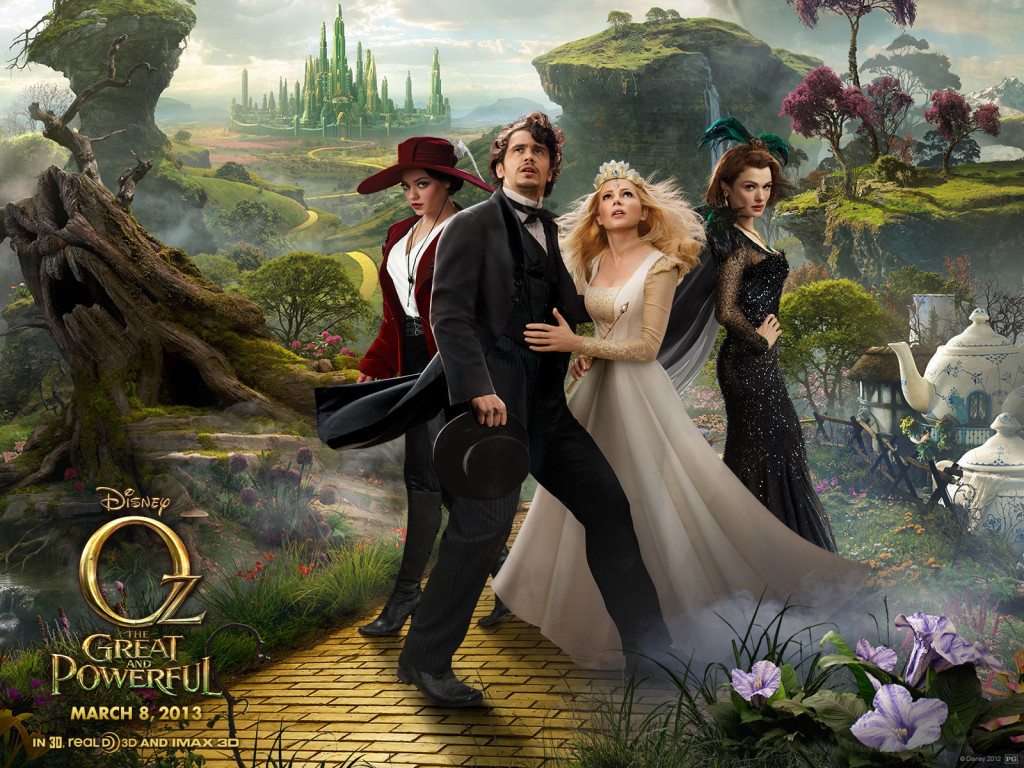

 Life of Pi was an unabashedly sentimental film. But give me an unabashedly sentimental film with an underdog hero I can get behind, like shipwrecked Suraj Sharma in the title role, and I’m a happy camper.
Life of Pi was an unabashedly sentimental film. But give me an unabashedly sentimental film with an underdog hero I can get behind, like shipwrecked Suraj Sharma in the title role, and I’m a happy camper.